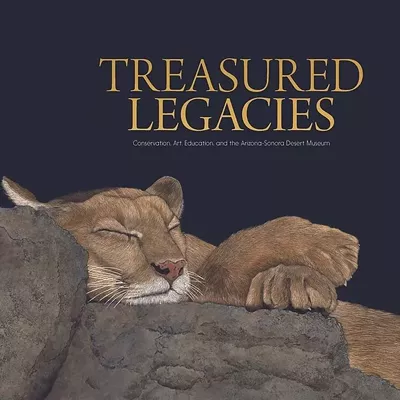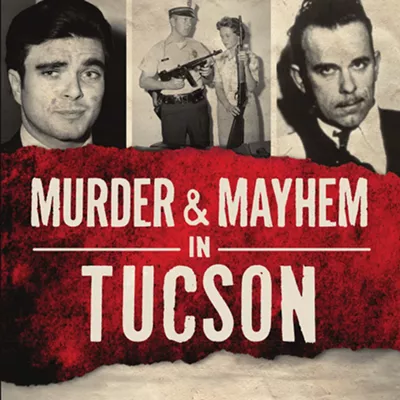Mouse Watkins' nickname is ironic: It was bestowed on him as a child, the result of being "quiet as a mouse," but it stuck despite his eventual affinity for percussion. Now in his early 40s and undergoing a serious midlife crisis, Mouse is trying to cope with the breakup of the Bad Apples, the St. Louis-based funk band he led for some 20 years.
Mouse is the heart of Tucson author Mark Zero's excellent new novel, Give the Drummer Some. It's accessibly readable, but also has a deep emotional core, as Zero carefully details and defines Mouse's growing ennui, the gnawing feeling that years of work—deservedly praised but leaving him with almost no money to show for it—have all been for nothing.
Although he is something of a local legend, Mouse usually has lived at his mother's or sister's houses—when he wasn't on the road with the Apples, that is, or crashing with a girlfriend. With the dissolution of the band, he must get a straight job at minimum wage, moving boxes of Bud Light at the Anheuser-Busch plant, and find a grown-up apartment. And find himself.
He reconnects with an old girlfriend, Shauna, from the early days of the band, and her subtle but monumental influence on his life becomes a catalyst for change and a source of shame. Shame not simply because he is African American, and she's an alabaster-skinned redhead, but because her relative career success and healthy wanderlust contrasts uncomfortably with his sense of loss and of being lost.
Through the character of Mouse, the reader can experience that feeling of believing a little too much in one's own mythology, and then feeling cheated when that on which you based your identity is snatched away.
The novel vividly depicts the reality of a lifetime musician for whom life never fully blossoms unless he is making music, and it provides special insights into the drummer's art of creating rhythm and keeping time. As described by Zero, Mouse can detect the natural rhythms of humans and the planet, subtly altering activity around him with his ability to divide time into musical phrases. The character feels that playing percussion is a "metered propulsion to ecstasy, toward the joy hidden in everyday life: drumming (is) measuring time in order to elude its effects."
It won't be lost on thoughtful readers, either, that while Mouse plays funk music, he also is in a funk.
Zero is clearly adept at illustrating through metaphor, simile and allegory the lenses through which Mouse looks at the world. Mouse can be found outside of a yuppie outdoor market "letting the steam from his coffee caress his face," or wandering the street, depressed and feeling "his loneliness as a thick dressing of gauze around his heart." And in just a few words, Zero brilliantly captures a large part of the appeal of nostalgia: "The past was a safer place for him to be right now than the present ... ."
The author palpably describes the feeling of hatred as "a spinning metal disk in his chest," which is impressive enough, but then he elaborates, insightfully exploring the way that emotion evolves in a person: "Once he had named the feeling, his contempt expanded and hardened and replaced all his other confusion."
Once in a while, Zero can get a little florid, such as when a piano recital makes Mouse feel "the teeming fetidness of his own estuary drawn by tidal forces into a larger, fresher, more turbulent sea."
Zero's clever descriptions are like gravy, extra dollops of saucy flavor that he pours over the meat of his writing: Mouse's deeply personal journey to the point of his unflinchingly honest assessment of who he is. When Mouse experiences what amounts to a nervous breakdown, it goes beyond emotional. Let's just say the depiction is credible and believable, and he's lucky to have Shauna there to help him through it.
Without giving away too much, the conclusion of the novel is both cathartic and calming, as if Mouse is finding his way back to the person he is, and discovering something new in himself—something that perhaps was always there.
It may be dangerous to compare Give the Drummer Some to the work of a master, but here goes: There are moments in this novel when its tumultuous embrace of the emotional forces at work in the act of playing music call to mind elements of James Baldwin's classic jazz-oriented short story "Sonny's Blues."






